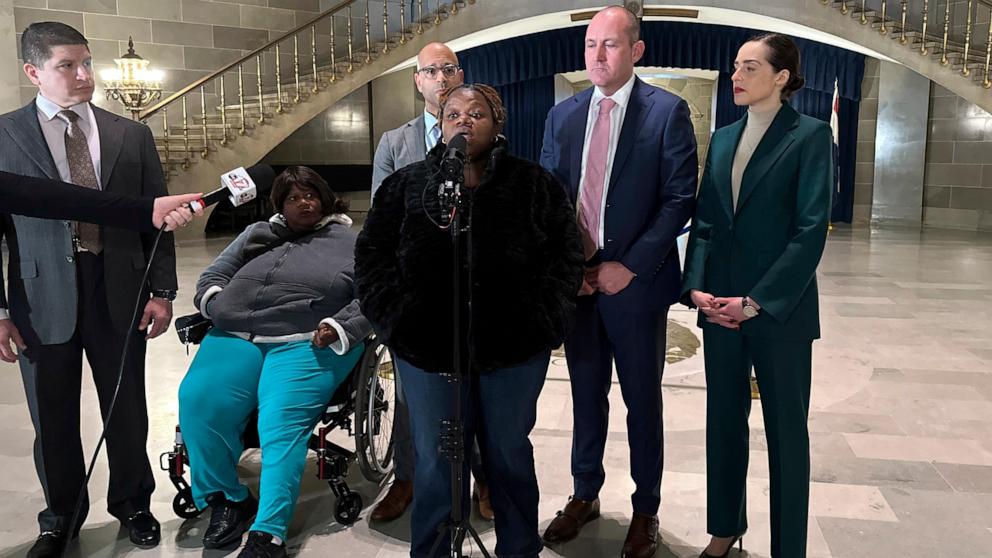It’s Pride Month. Let’s check the status of LGBTQ+ rights in Michigan

Growing up queer in a country whose politicians and laws express nothing but contempt for you shapes your earliest memories and sets the contours of every future you can imagine.
I had this experience growing up in Michigan, during the era of the “Don’t Ask Don’t Tell” principle and the 2004 ban on gay marriage in the state constitution.
Against this cruel backdrop, safe havens like the Youth Drop-In Center at Affirmations, Ferndale’s LGBTQ+ community center, were essential. The friends and mentors I met there saved my life, but we knew the world we were building didn’t yet exist outside the walls of Affirmations.
In the years since, the LGBTQ+ equality movement has worked to slowly change public opinion both across the country and in our own state.
But even as Michigan residents became more tolerant, the state’s laws and policies did not reflect that change. Polls from Hart Research Associates in 2017 showed that a broad majority of Michigan residents supported civil rights for their LGBTQ+ peers—but it would be years before any of the measures they favored became law in Michigan.
Only when Michigan citizens abandoned gerrymandering, expanded their voting rights, and tore down the walls that had excluded them from the democratic process were they finally able to translate their will into law.
In the last few years alone, Michigan lawmakers have finally passed a slew of bills to end this system of legalized hate, including adding protections for gender identity and sexual orientation to the state’s Elliott-Larsen Civil Rights Act (ELCRA) and banning the practice of conversion therapy for LGBTQ+ young people.
Today is a new day in Michigan, and we have so much to celebrate this Pride Month. But other states are now moving in the opposite direction: Indiana has passed a ban on healthcare for transgender young people, and Ohio has passed its own version of a “Don’t Say Gay” law. There is also a risk of backsliding at the federal level: former President Donald Trump and the current Republican majority in the U.S. House of Representatives are signaling their intent to pass these and other similar backslidings on the rights and protections of LGBTQ+ Americans as soon as they get the power to do so. Given these alarming developments, we should take a close look at how Michigan has become a bastion for LGBTQ+ rights instead.
Dispute with Caitlin Clark of the WNBA: The WNBA incident reminded me of the fighting Detroit teams – and why sport needs politics
Fixing gerrymandering was good for LGBTQ+ Michiganders
The wide gap between Michiganders’ views and the laws in place was a byproduct of the deeply unrepresentative government under which the state suffered.
The only way for the people to regain control of this government was to adopt reforms that would make Michigan’s government more representative and make voting more accessible.
Michigan citizens went on the offensive, expanding their power and pushing through important reforms by passing ballot initiatives in 2018 and 2022 to both end gerrymandering in the legislature and enshrine key voting rights in the state constitution.
The key provisions of these constitutional amendments, which expanded access to voting, included the right to register to vote on and before Election Day, the right to vote by mail for any reason, the introduction of automatic voter registration, the widespread provision of mail-in ballot boxes, the guarantee of postage-free mail-in voting, and the introduction of early in-person voting.
With all of these provisions in place, it has never been easier for Michigan residents to cast their ballots and participate in our democracy.
And we are already seeing that these reforms are bearing fruit.
Obama in Detroit: Barack Obama visited Detroit last night. He wants us to continue to have hope.
A majority with mandate
Tufts University’s Center for Information & Research on Civic Learning and Engagement (CIRCLE) found in a nationwide study that Michigan had the highest youth voter turnout in the 2022 election and the second-highest rate of increase in youth voter turnout compared to the 2018 election, the last statewide election before these provisions went into effect.
This generation proudly represents the largest share of the country’s LGBTQ+ population. When Michiganders of all stripes came together to open the doors to the state’s democracy, the state’s queer voters marched right in.
In that same election, those new voters helped elect a new Democratic majority in both houses of the state legislature for the first time in a generation. Elected on independently drawn district maps, that new majority took office with clear marching orders from the Michiganders who put them there: the monumental task of eradicating hate from the state’s laws for good.
And that’s exactly what they did.
They passed a long-awaited ban on discrimination based on sexual orientation, gender identity and expression. They courageously ended the abusive practice of conversion therapy across the state. And they removed the barriers that made it difficult for LGBTQ+ Michiganders to create loving families through surrogacy, IVF and adoption.
At the same time, this majority opened the curtain on the ballot box even further and made Michigan’s democracy even more representative, vibrant and inclusive.
They passed legislation to codify and implement the pro-voter constitutional measures that Michiganders had just approved in 2022. They went even further, passing legislation that allows Michiganders as young as 16 to pre-register so that by the time they turn 18, they’re registered and able to vote without any further action required. And they even expanded the number of opportunities for Michiganders to automatically register to vote – including when they’re released from prison and when they apply for Medicaid.
We are not finished yet
All of these reforms have brought justice to millions of Michigan residents.
But Michigan’s legislative majority can do more to make the state a true leader in both voting rights and LGBTQ+ equality.
Lawmakers still need to pass the Michigan Voting Rights Act, which would give Michigan residents the ability to protect their right to vote from suppression and make voting more accessible for voters with disabilities as well as those who speak a language other than English.
And they still need to pass a package of bills that would make it easier for transgender citizens in Michigan to legally change their name and gender.
Michigan’s bold actions have made this state a safe haven for all LGBTQ+ Americans.
We keep ourselves safe. And with a real right to vote, LGBTQ+ citizens in Michigan were finally able to secure their rights and protections under the law.
This year, Michigan residents have the best opportunity to celebrate this tremendous progress by exercising their new rights from Pride Month through Election Day.
Stuart Baum is an expert in election law and election administration. He was born and raised in the Detroit metropolitan area. A graduate of Wayne State University, he was a member of Secretary of State Jocelyn Benson’s first Collegiate Student Advisory Task Force. He currently lives in Brooklyn.



